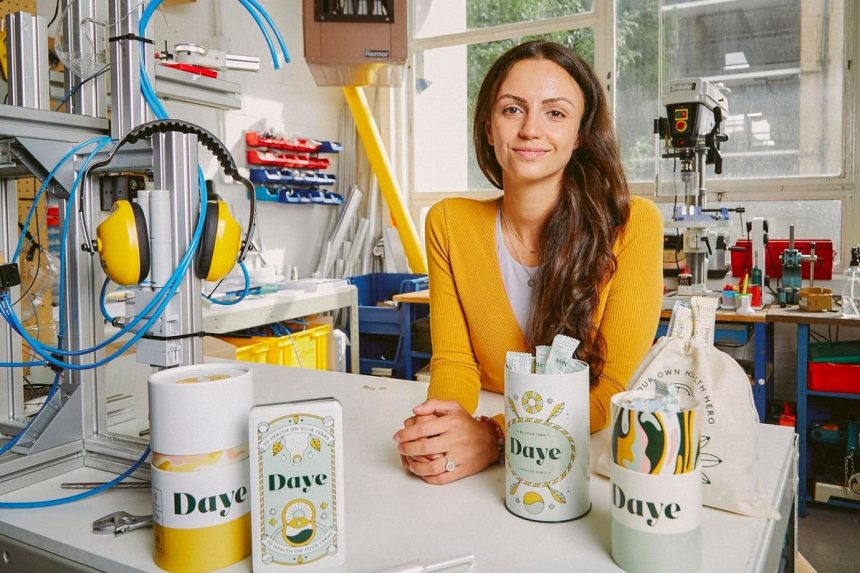Today, award-winning gynaecological health startup Daye announces the launch of the world’s first virtual Period Pain Clinic to help women and assigned female at birth (AFAB) individuals identify the root cause of their period pain and gain easy access to diagnostic information to help them manage their symptoms appropriately.
Nine in 10 women have suffered with period pain, and researchers from University College London (UCL) have shown that period pain can be as painful as having a heart attack. Despite this, many of these women suffer in silence, with 57% saying period pains have impacted their ability to work.
Daye advocates that menstrual pain is a profound health concern and that chronic pain sufferers need attention, support, and faster access to effective medical interventions.
In collaboration with NHS GPs, gynaecologists and chronic pelvic pain specialists, this female-founded startup has developed a groundbreaking new service called Period Pain Clinic (PPC) to help women understand and manage their period pain with ease and affordability. The new service conducts a thorough assessment of a patient’s symptoms and offers private consultations with a range of specialists, including sexual health nurses, gynaecologists, pelvic pain and fertility specialists, nutritionists, dermatologists, breathwork coaches, acupuncturists, and more.
These carefully vetted healthcare professionals are able to provide a faster diagnosis of the root cause of people’s period pain and conditions such as endometriosis, adenomyosis, Polycystic Ovarian Syndrome (PCOS), fibroids, and other conditions associated with chronic pelvic pain. They can also address other connected and largely unmanaged symptoms, including infertility, hair loss, obesity, and severe acne.
It also recommends symptom management tools for which there is clinical evidence. Examples of recommended interventions may include prescribed CBD (cannabidiol) tampons, TENS machines, pelvic floor trainers, acupuncture, hormonal contraception, among many others. Daye has partnered with leading pioneers in pain management businesses, such as Myoovi, to help women get discounts on the recommended products.
“Changing the way we diagnose and treat period pain is very important as currently, it can take 7-10 years for patients to obtain answers and treatments. Frustratingly, women get diagnosed later than men in over 700 diseases. In addition, patients can forgo as much as £40,000 in earned income through the lengthy process of trying to manage their pain and obtain a diagnosis,” explains Valentina Milanova, founder of Daye.
Following her personal experiences with severe period pain, and after hearing stories of debilitating menstrual symptoms from thousands of members of the Daye community, Milanova feels like it is high time to address chronic pain with a modern answer. “Our proprietary algorithms and virtual consultations ensure women and AFAB (assigned female at birth) folks have access to convenient, accessible, personalised care. This launch marks an important milestone in advancing the way we diagnose and treat gynaecological health conditions and a significant step towards not only redefining the narrative surrounding periods but also empowering millions of women and AFAB individuals to better understand, manage, and challenge the status quo surrounding their monthly pain.”
“Women and AFAB individuals can go years without seeking a cause for their period pain, accepting it as an inevitable feature of their monthly cycle. Yet period pain can be caused by a number of serious conditions, such as endometriosis and PCOS, which can cause additional complications further down the line if left untreated.
“Through our virtual platform, patients will receive continuous support, education, and access to resources, fostering a sense of community and enablement among individuals dealing with these chronic conditions. I couldn’t be more proud of the new service which will enable us to deliver on our mission to bridge the gender gap in medical research and innovation, and to raise the bar in the provision of gynaecological care,” concludes Milanova.
Read the full article here





